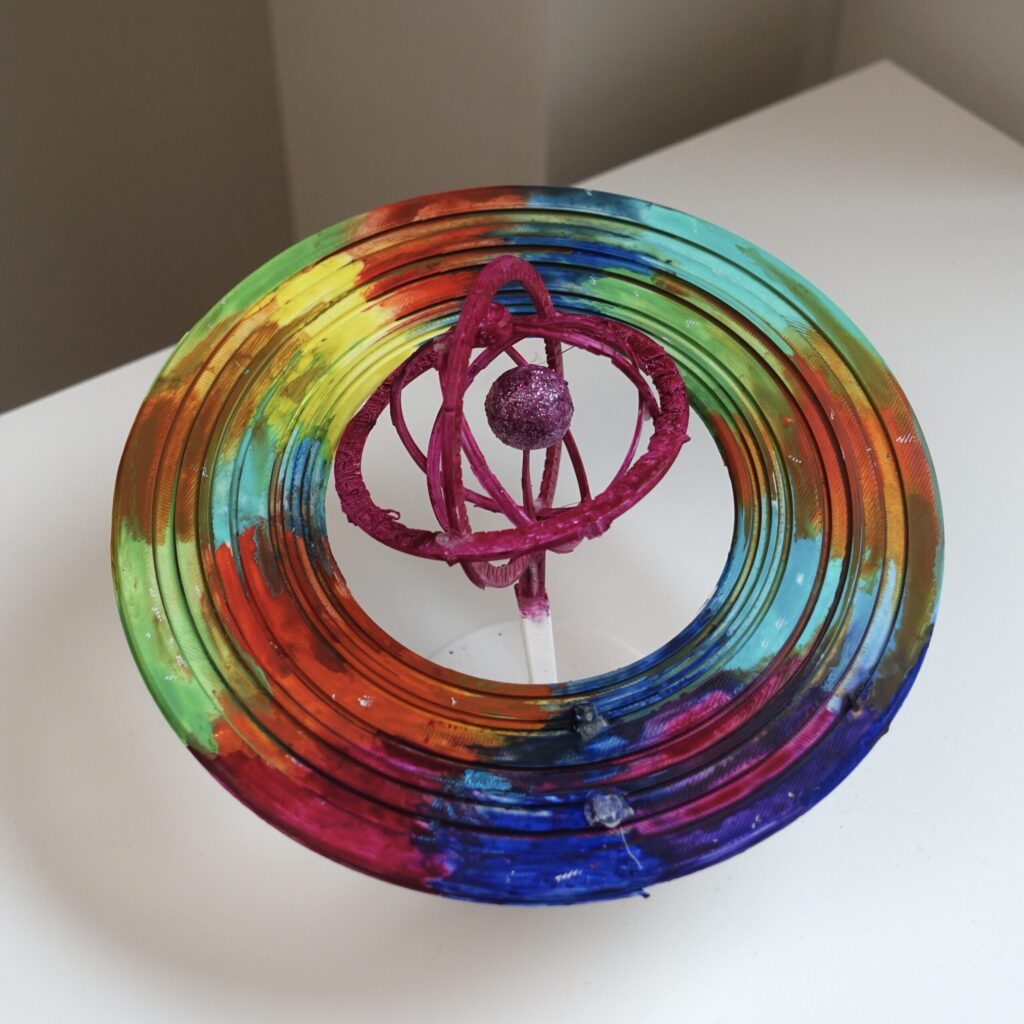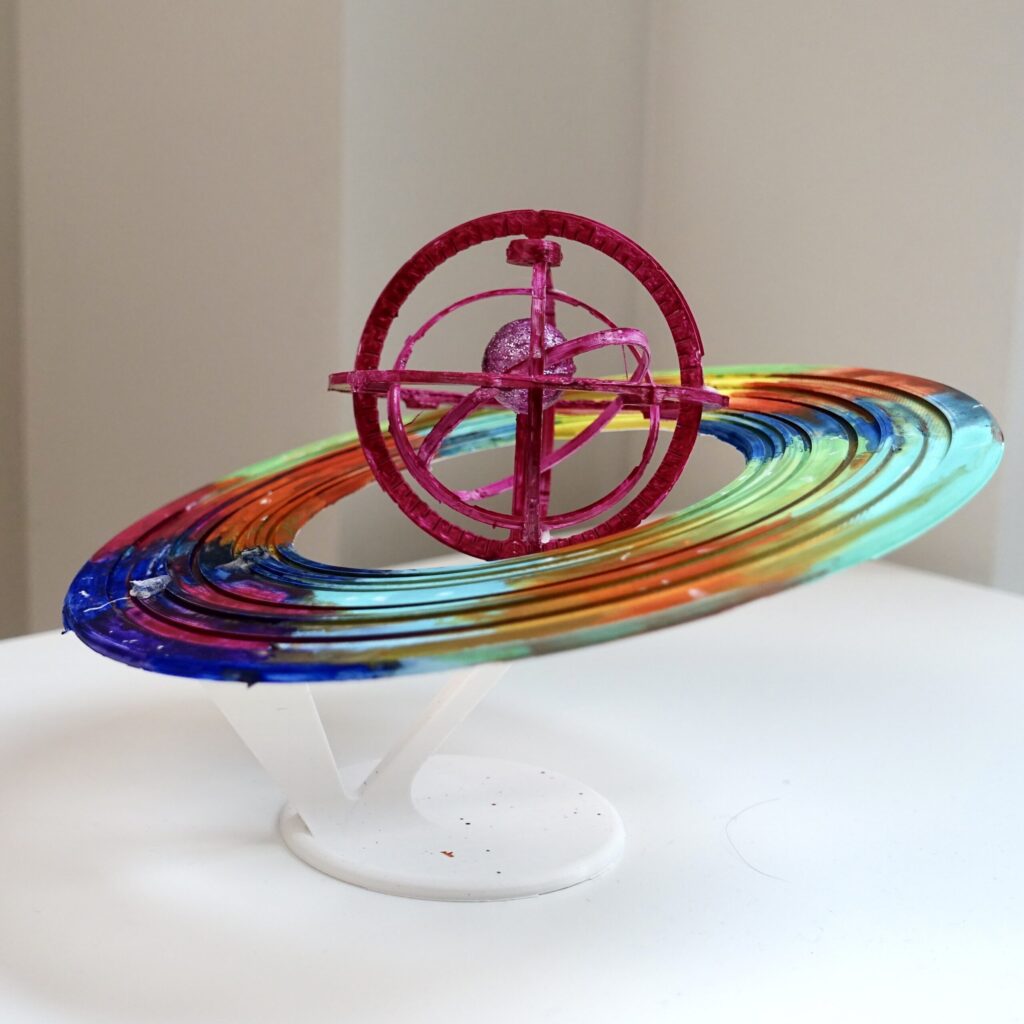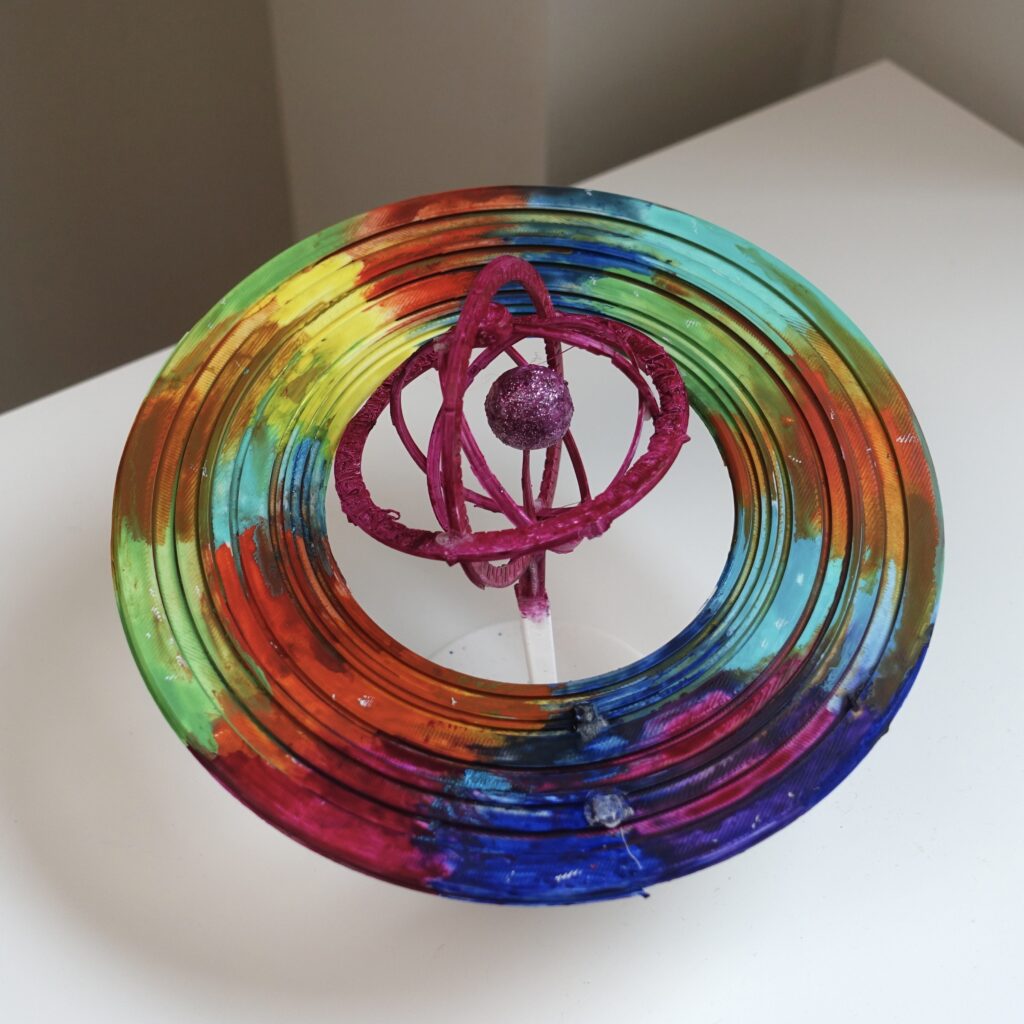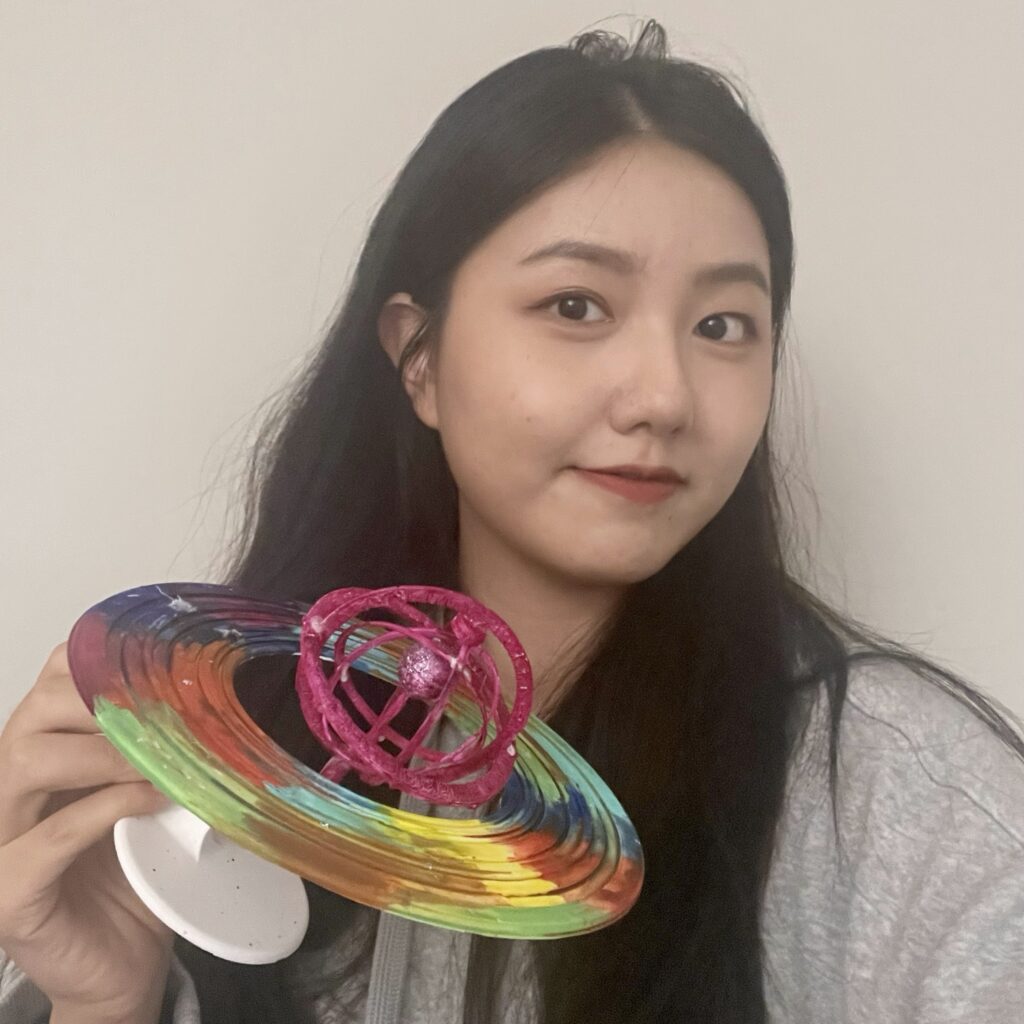
keyword

Personalization.

My keyword is Personalization. Whenever I enter a new app, it asks for my preferences and provides tailored content. From interests to news, my life indulges in personalized chambers, distanced from other parts of the world, and comprehending different perspectives becomes challenging.
Cognitive biases make people take in familiar things (Nemr & William, 2019). Technologies amplify this psychological trait with preferable contents, confining individuals in the designed world and demotivating exploration of other resources.
The 3D-print planet in my avatar represents an individual who begins with a love for pink. Pink-related content circulates and traps the individual in a comfortable pink space, leading to ignorance and denial of the kaleidoscopic outside universe. The painted disc represents diverse information and perspectives. Increased interaction with like-minded others is also a crucial result of the process.
This personalized universe refers to filter bubbles or echo chambers in the academic field. Previous studies debated several aspects of these concepts to understand the online environment, including people’s tendencies, algorithms, fragmentation, polarization, etc. Media landscape changes with the development of technology, which impacts how individuals receive information and form their opinions regarding controversial issues. In all, the damages caused by personalization are contributed by various factors with multiple stakeholders. The mechanisms behind the colorful ring and the motivation behind the pink globe all fascinate me, leading me to explore more in the future.
Reference
Nemr, C. & Gangware, W. (2019). Weapons of mass distraction: foreign state-sponsored disinformation in the digital age (pp. 6-12). Washington, D.C.: Park Advisors.







